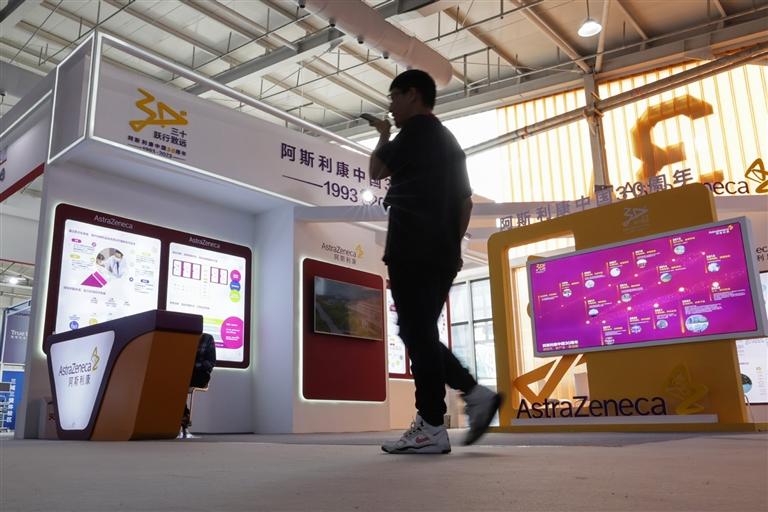
SOME of the biggest global drugmakers are scouring for deals in China to replenish drug pipelines and boost their presence in the world’s second-biggest pharmaceutical market, Reuters quoted industry executives and investment bankers as saying. Several major deals have already been completed this year, including AstraZeneca’s US$1.2 billion purchase of China-based cell therapy developer Gracell Biotechnologies and Novartis’ acquisition of remaining shares of kidney disease therapy developer SanReno Therapeutics for an undisclosed amount. Bristol Myers Squibb and Sanofi are also hunting for deals, according to company employees. The foreign interest in Chinese drugmakers is welcomed by struggling local firms and weary investors eager to cash out on their investments as regulators tighten initial public offering rules, putting pressure on businesses that have difficulty in raising cash to support their research work. Manas Chawla, chief executive of global political risk advisory firm London Politica, which has worked with multinational pharmaceutical clients, said acquisitions would help them bring down costs, tap into innovative companies and get exposure to China’s large consumer market. The majority of buyers of Chinese healthcare companies have been domestic in the past two decades, LSEG data showed. Announced acquisitions of Chinese healthcare companies totalled US$6.8 billion as of July 16 this year, the lowest in a decade for the same period, the data showed. Among them, foreign acquisitions accounted for US$720 million in value, down 52% year-on-year, the data showed. Bristol Myers Squibb, which faces challenges from patent expiries, is looking for “bolt-on opportunities,” said Wu Liang, a business development head at the U.S. drugmaker, at a meeting of the Chinese Biopharmaceutical Association – U.S.A. in Suzhou in late June. She said one of its interests in China is antibody-drug conjugate, a cancer drug combining targeted therapy and chemotherapy. It currently has an agreement to develop and commercialize one of Chinese drugmaker Sichuan Biokin Pharmaceutical’s antibody-drug conjugates outside the country. Wei Wei, a new product planning manager at Sanofi, told Reuters that buying biotechnology companies in China was a goal for the French drugmaker and had been discussed in meetings, without providing more details. A Sanofi spokesperson said the company was open-minded about acquisitions and could be strategic or seize opportunities when they presented themselves, regardless of the country. “Multinational companies are keen to look at potential acquisition targets in biotech, innovative drugs and the top-ranked companies in other sectors,” said Sophia Wu, a managing director and head of China healthcare at investment bank BDA Partners. Women’s health, aesthetics, neurology, and auto-immunity were also promising growth areas that could attract investor interest, she added. South Africa’s Aspen Pharmacare, which in December announced it agreed to buy Swiss group Sandoz’s China unit, is expanding in other markets while continuing to scout for Chinese assets, said Larry Merizalde, the firm’s China CEO. China accounted for about 10% of Aspen’s global revenue, Merizalde said before the Sandoz deal was announced, but it is only one of the dozens of countries where Africa’s biggest pharmaceutical company operates. To complete an acquisition in China, multinational companies have to go through a sometimes lengthy regulatory process involving antitrust and scrutiny over equity and the transfer of intellectual property, lawyers and analysts said.(SD-Agencies) | 
